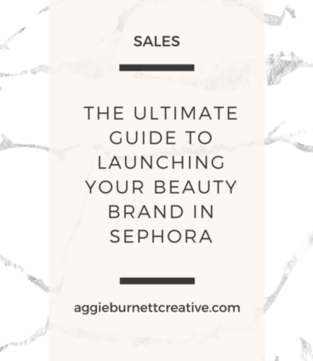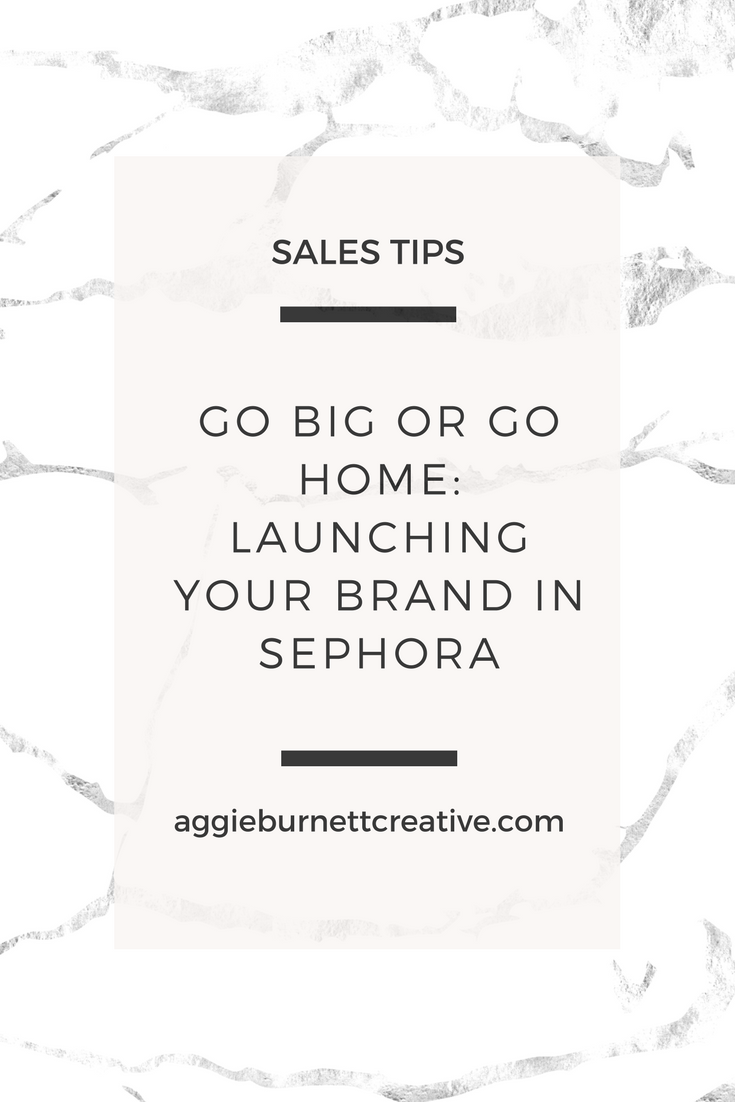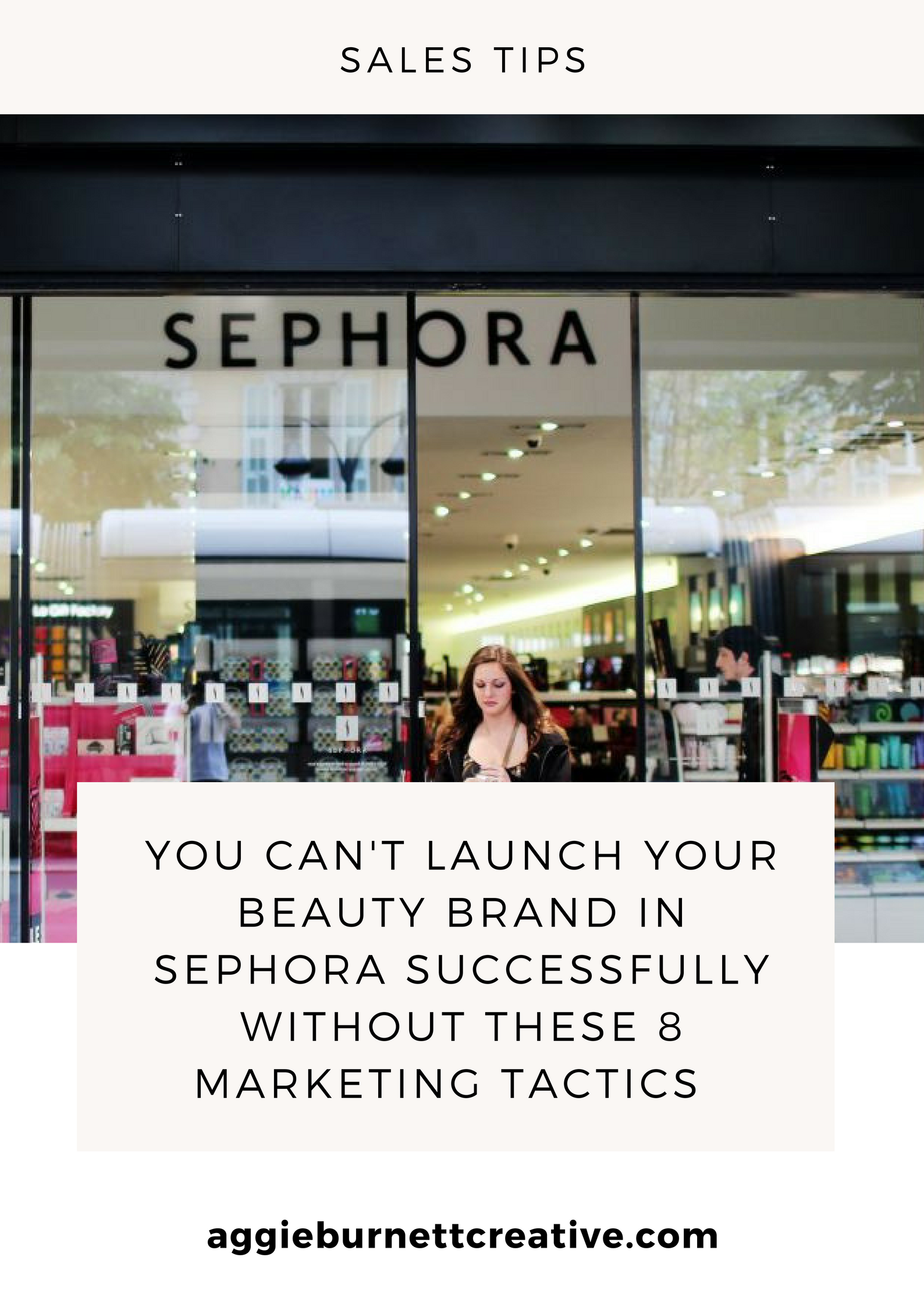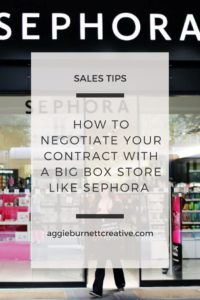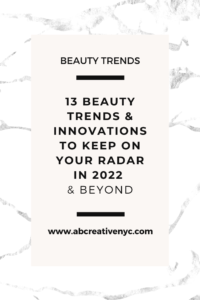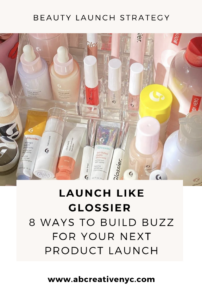Hopefully by now you’ve mastered Part 1, 2, and 3 of our How to Pitch Sephora series, and are well on your way to launching your beauty brand in Sephora.
In this last part of our series, I share the step by step process after you’ve signed your contract with Sephora. To be honest, we found this stage to be the most challenging and fraught with hiccups. At the time, we weren’t experienced with big box stores. Looking back, there are things we could have done differently. But if we hadn’t made certain mistakes, I wouldn’t be able to share the lessons learned below. So here it goes.
Below I share the my step by step guide to launching your brand in Sephora, which includes manufacturing and shipping your product to fill your PO, signing up for and using EDI for PO processing, preparing samples and testers, planning and executing an education strategy, and marketing your launch.
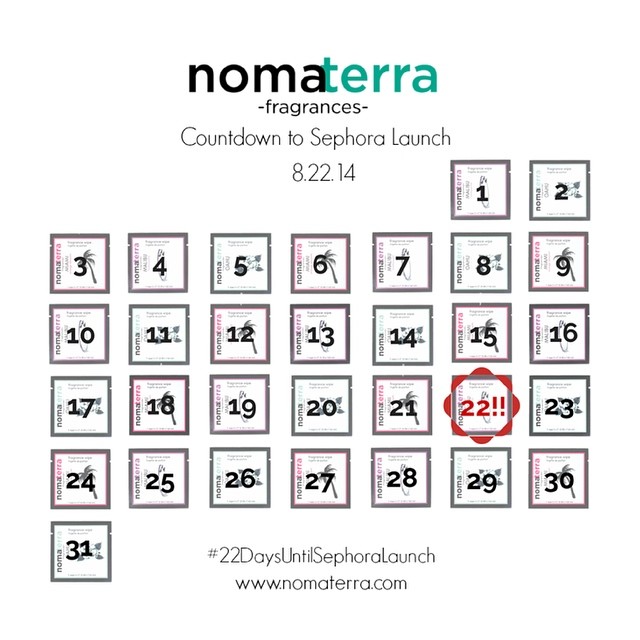 As you can see, there’s an infinite number of ways you can market your brand and prepare for a successful launch in Sephora. My biggest recommendation though is to have a plan of attack ready to go and stick with it—this is too large of a project to try random, haphazard tactics along the way. Be clear on your goal, and work backwards to create a timeline of your marketing strategy.
To make it easier to implement these strategies, download my checklist below and start working through this process step by step. In no time you’ll see your brand in Sephora!
👉Take our 5 Days to Growing Your Iconic Beauty Brand Challenge for only $17! –
As you can see, there’s an infinite number of ways you can market your brand and prepare for a successful launch in Sephora. My biggest recommendation though is to have a plan of attack ready to go and stick with it—this is too large of a project to try random, haphazard tactics along the way. Be clear on your goal, and work backwards to create a timeline of your marketing strategy.
To make it easier to implement these strategies, download my checklist below and start working through this process step by step. In no time you’ll see your brand in Sephora!
👉Take our 5 Days to Growing Your Iconic Beauty Brand Challenge for only $17! –
1) Manufacturing Your PO
I can’t stress this enough, do not feel pressured into producing product before you’ve received a purchase order. There are too many stories of brands going under because they produced inventory for a deal that never went through. Once you have your PO, get on your manufacturer’s queue as quickly as possible. Here’s some things to keep in mind when working with your manufacturer to fulfill the order:Check your mock up samples before going into mass production.
Get mock up samples of your product and check them thoroughly (ask your team to review them too to avoid missing anything). While this does extend the time it takes to get the final product manufactured, it will save you time and money in the long run if for whatever reason you need to make a change. You can’t go back once you go into mass production.Give your manufacturer an early deadline.
Give them an earlier deadline than the actual deadline you receive from Sephora. Thhere are always delays, especially on your first go around. You want to give yourself enough time to allow for mistakes. When calculating your timeline, consider US and international holidays, summer Fridays, and customs checks (if your product or packaging is manufactured overseas).Check the products personally before they get shipped to Sephora.
This isn’t always an option for every company, but if you can, figure out how you can check the products personally before they get shipped out to Sephora’s distribution centers. We had our manufacturing team ship the final product to our local warehouse, where we checked them and then shipped those products to Sephora. This was done as a precaution even though it obviously added lots of extra time. We wanted to make sure the product was perfect and that we had full control as to how everything looked when it arrived to Sephora’s distribution centers. We saved our asses doing this because upon receiving the product, we discovered that our manufacturer’s machines had errored and many of our fragrances wipes were missing scented pads inside the sleeves. In fact, a 1/4th of the sleeves were missing scented pads. It would have been a HUGE problem if customers purchased the product and upon opening a sleeve found no wipe inside. We ended up getting our family and friends to check each and every sleeve over the course of 7 days (that’s how long it took to check 100,000 wipes BY HAND). For this reason, I recommend having your PO shipped wherever you can do a final check on it, before it gets shipped out.Purchase more than your PO.
Per the above example, because of the issues we encountered with our wipes, we would have been in mega trouble if we hadn’t produced extra product. You can always take your extra inventory and sell it on your website or do a special promotion with it, but you’ll rarely get a second chance at Sephora.Get a quarantine test done on your product.
Check with your manufacturer whether they do a quarantine test for bacteria before they ship your product. This test checks for bacteria and yeast and takes about 5-7 days total. You should also receive a quarantine letter, which authorizes your manufacturer to ship the product out safely.2) Ship Your Product
Find a carrier. Your warehouse may already have a relationship with a carrier, but if not, you’ll want to work with a carrier that you can trust with your precious cargo! Sephora has intense shipping guidelines. If you don’t follow them to a T you can be penalized. Know the what, when and where of your shipping stats. Are you shipping to one distribution center or multiple? Through a forwarder or direct? When can you expect your BOL (Bill of Lading) from Sephora’s Inbound Transportation Coordinator? What sort of labels should go on the boxes and what size do the labels need to be? Can you use peanuts or only bubble wrap? These are some of the questions you’ll need answers to before shipping out your product. Super boring stuff but you want to avoid any fees.3) Provide testers and samples
Ask your Sephora team what they expect from your brand in regards to testers and samples. For our product, we needed to pack three sets of testers for each fragrance into individually labeled packages and send them to the distribution centers separately from the PO. You may need to ship them together with your PO or to the individual stores, so just check with your buyer early about this.4) Set up your Sephora.com brand page
Provide your Sephora.com merchant with your company and product assets for your Sephora.com brand page. Seeing your brand go live on their website is a “pinch me” moment, so enjoy it! For your brand page, here’s what you’ll need to provide:- Brand Statement for Sephora.com Brand Page
- Logo
- Brand Page Homepage Image
- Product Page Assets
- Product Copy
Forms to fill out:
- Sephora Vendor Content License Agreement—in order to leverage video content
- Sampling Order Form—to get samples set up in their system (if you have samples)
Guidelines:
- Sephora.com New Brand Set-up—list out assets necessary to set up brand on sephora.com
- Sephora Vendor Content Submission Guidelines
5) Educate cast members
In-store Demos
Check with your head buyer and the Education team about setting up demos in-store (especially if your product is not self-explanatory or experiential). Work with your buying team to schedule education sessions aka “Brand Focus days” at every location your product is in (this is also why it’s better to start with a small selection of stores to launch with, rather than go nationwide from the get go).Sales Rep Training
You may already have sales reps on your team—utilize them and schedule them to train Sephora stores in their area. If you don’t have reps, start looking to hire and train some on a project-basis. Not sure where to find them? Ask your manufacturers, suppliers, and even retailers you work with for recommendations. Sales reps through word-of-mouth are the best in my opinion. You’ll need to go through an official Sephora training process before you can start sending your reps to educate stores. This can be a big pain, and a slow process, and time is of the essence to have a successful launch! So try to discuss this with your buying team early on in your partnership with them. This part of our launch process definitely came as a surprise, we didn’t realize just how many hoops we would have to jump through to be ALLOWED to HELP Sephora sell our product.Product One-Pager
Get your buying team to include your product one-pager in a weekly merchant communication email to cast members. Your one-pager should included a photo of your product, its specs, and how to use it. This should be scheduled in alignment with when most stores will have the product on store shelves. This communication is used as mandatory training for all cast members.Sephora In-Store IQ
You know those touch screen destinations in Sephora stores, where you can search any product available in-store and online? Have the buying team add you to your appropriate “IQ” (skin, color, fragrance). You’d think this would be done automatically, but we found that we weren’t searchable until we brought it up with the team.6) Plan a comprehensive marketing campaign for your Sephora launch
Ultimately, the breadth of having a successful Sephora launch falls on you. This includes social media teasers, newsletter announcements, product contests and giveaways, press placements and whatever else is in your framework of promoting your brand. You’ll need to create a strategy that will blow sales out of the water. Maybe you offer a discount code on your site in exchanged for in-store product purchases. Or maybe you pull a Sara Blakely and go to each store and move the product to the front (sometimes you need to take drastic measures to get drastic results!). We were inspired by Blakely and did in fact try this—it worked a handful of times. It really depends on the managers running the stores, how by-the-books they are, and how good of a relationship you build with them. Here are some marketing tips we learned along the way:Start early
Pre-launch activities should begin about 6-8 weeks prior to the launch date (even longer for long-lead press). Know the lead times of long-lead and short-lead media, tv and influencers. If you need help with this, please contact us here. CONTINUE partnerships and pitching placements well into your launch, as this will ensure momentum build-up.Plant social media teasers
Take as many behind-the-scenes production shots as possible. Tease them out on your social channels slowly over a 2-3 month period. Take people on the journey of makers process with the end product clear, or give vague clues without revealing the actual product using quotes, puns, and euphemisms.Get your product in the hands of influencers and fans
The name of the game is to get your product in the hands of influencers and superfans as widely as possible. Encourage them to share, review, write, and post about your product prior to and during the launch. Yes, this seems counter intuitive. You may be thinking—wait, but isn’t the whole point to get people to the stores to SHOP the product therefore increase sales? Yes, it is, but there are thousands upon thousands of people that will be more enticed to shop your product if they see their friends, family, and the people they follow on social using the product already.Create a custom landing page with email capture for the product
Once your product launches in stores, target subscribers and let them know when the product is available to shop! Send them regular updates—if Sephora adds additional products from your brand in stores, if they sell out of any products, etc.Think outside the box
We planned an East Coast road trip from NYC to Quebec that doubled as a vacation and work trip. Making stops at Sephora stores along the way, we educated and introduced ourselves to the managers and cast members. We shared our journey with our followers, posting fun pics in Sephora stores with our product as well as travel photos. You can take this one step further and turn it into a scavenger hunt for your followers.Do a countdown on social media
Create a fun countdown calendar like the one below, marking each day with a hashtag like #4daysleft. Pair each day with a giveaway or contest on your site, or in collaboration with another brand or influencer. As you can see, there’s an infinite number of ways you can market your brand and prepare for a successful launch in Sephora. My biggest recommendation though is to have a plan of attack ready to go and stick with it—this is too large of a project to try random, haphazard tactics along the way. Be clear on your goal, and work backwards to create a timeline of your marketing strategy.
To make it easier to implement these strategies, download my checklist below and start working through this process step by step. In no time you’ll see your brand in Sephora!
As you can see, there’s an infinite number of ways you can market your brand and prepare for a successful launch in Sephora. My biggest recommendation though is to have a plan of attack ready to go and stick with it—this is too large of a project to try random, haphazard tactics along the way. Be clear on your goal, and work backwards to create a timeline of your marketing strategy.
To make it easier to implement these strategies, download my checklist below and start working through this process step by step. In no time you’ll see your brand in Sephora!
7) Streamline Your efforts
You may have a boatload of other stuff on the table and offers to work with other retailers, trade shows, etc. DON’T DO THEM. Put them aside briefly to focus on your launch at Sephora. I promise, those opportunities will still be there in a few months. You really have only one shot to get your launch right, so focus on this entirely. We made the mistake of doing a major trade show around the same time our product launched in Sephora. It was a killer trying to get it all done. We had already paid for a booth before we had gotten the green light from Sephora, so we felt like we needed to power through and do both. In hindsight, it would have been wise to eat the cost of the booth and focus on the Sephora launch for the best shot at success. We ended up encountering a number of issues at the trade show, which left us absolutely exhausted. We also had sales reps at the time emailing us about other big accounts—we should have just put everything on pause to make the most of our partnership with Sephora.8) Track your numbers
Do regular check ins by phone and email with the buying team on sales numbers, and education communication. Stay on track to hit agreed-upon sales goals. Discuss what can be done both internally brand-side and by the Sephora team to boost sales. Use this comprehensive guide to help you launch your beauty brand in Sephora. I’d love to hear about your process in working with Sephora, what worked and didn’t work in launching your product either in Sephora or in another big box retailer, and any tips you have to share with readers for the greatest shot at success! Want help in uncovering your company’s cult-status brand strategy? Want to be the kind of brand that has customers hopping on waitlists and spreading the word of your brand for you without you even asking? Learn more about how you can do this here.Related Posts
